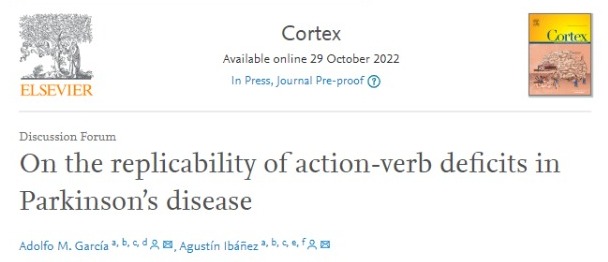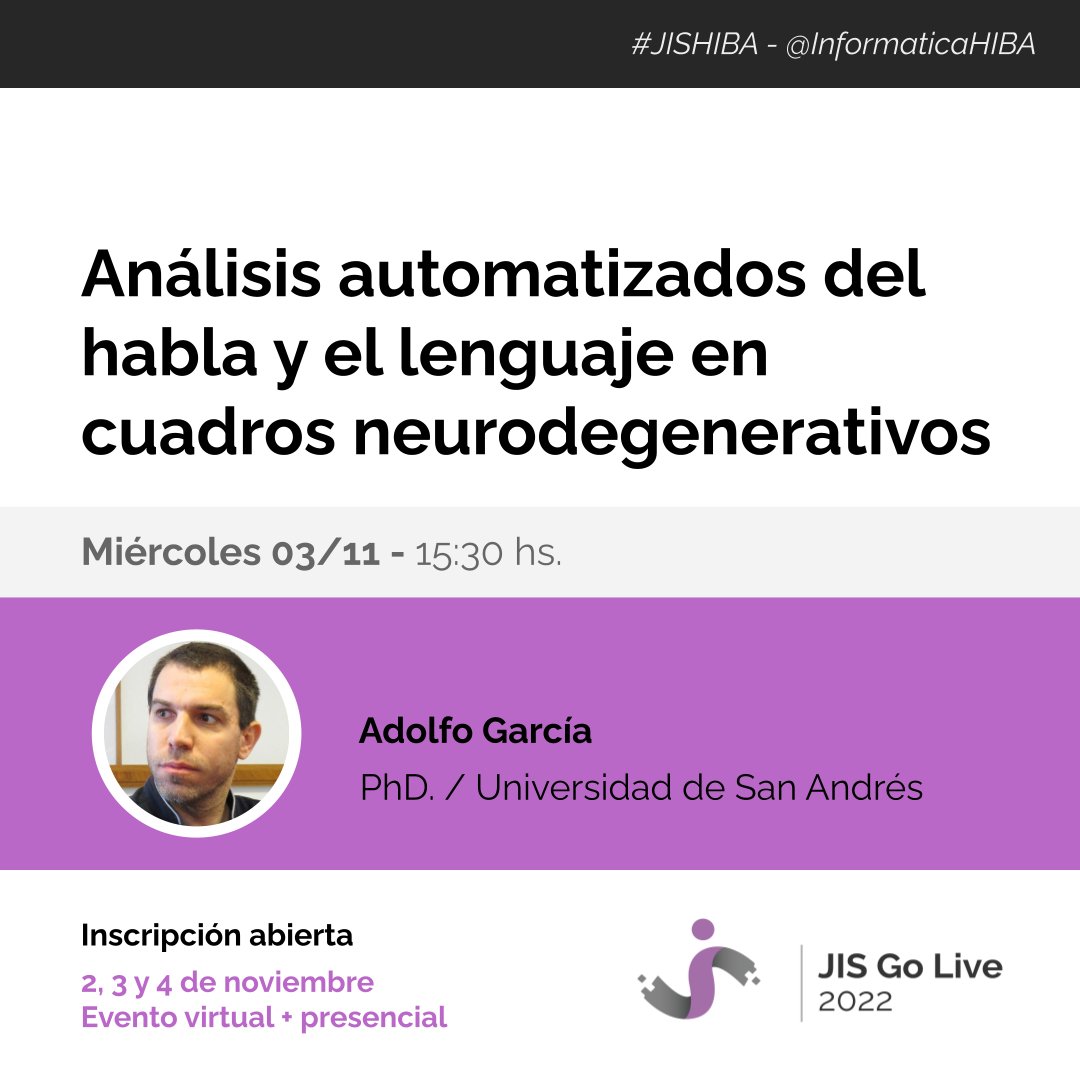On the replicability of action-verb deficits in Parkinson’s disease
García, A. M. & Ibáñez, A. (2022). On the replicability of action-verb deficits in Parkinson’s disease. Cortex 158, 1-3.
Múltiples trabajos indican que los verbos de acción se ven afectados de modo específico en la enfermedad de Parkinson. En este trabajo identificamos diversos puntos que explicarían por qué tal hallazgo no siempre se ve replicado, con foco sobre variables clínicas, textuales y cros-lingüísticas.
Para acceder al artículo, hacé click aquí.
On the replicability of action-verb deficits in Parkinson’s disease
García, A. M. & Ibáñez, A. (2022). On the replicability of action-verb deficits in Parkinson’s disease. Cortex 158, 1-3.
The study of action verb processing in Parkinson’s disease (PD) represents a promising approach to identify specific neurocognitive biomarkers (Birba et al., 2017; Cardona et al., 2013; García et al., 2020; García & Ibáñez, 2018). We appreciate Holm Møller et al.’s effort to replicate and extend our original study (Garcia et al., 2018), which showed that Spanishspeaking PD patients without mild cognitive impairment (PD-nMCI) were selectively impaired in processing actions evoked by naturalistic narratives. This finding reinforced the widely reported observation that motor-system alterations undermine grasping of verbal units denoting bodily motion (García & Ibáñez, 2018). Yet, Holm Møller et al. failed to replicate such a finding on a Danish-speaking cohort when using partly similar action and non-action texts (AT, nAT) and additional materials.
Holm Møller et al.’s effort is timely, as cross-linguistic studies represent a crucial milestone for cognitive research on PD (Calvo, Ibáñez, Muñoz, & García, 2018; García & Orozco- Arroyave, 2021), especially when focused on action verbs (Birba et al., 2017; Calvo et al., 2018). This is all the more valuable when discrepant outcomes arise. Juxtaposed to García et al.’s findings, Holm Møller et al.’s negative results motivate relevant methodological, typological, epistemological, and meta theoretical considerations, as detailed next.
To access the full paper, please click here.



